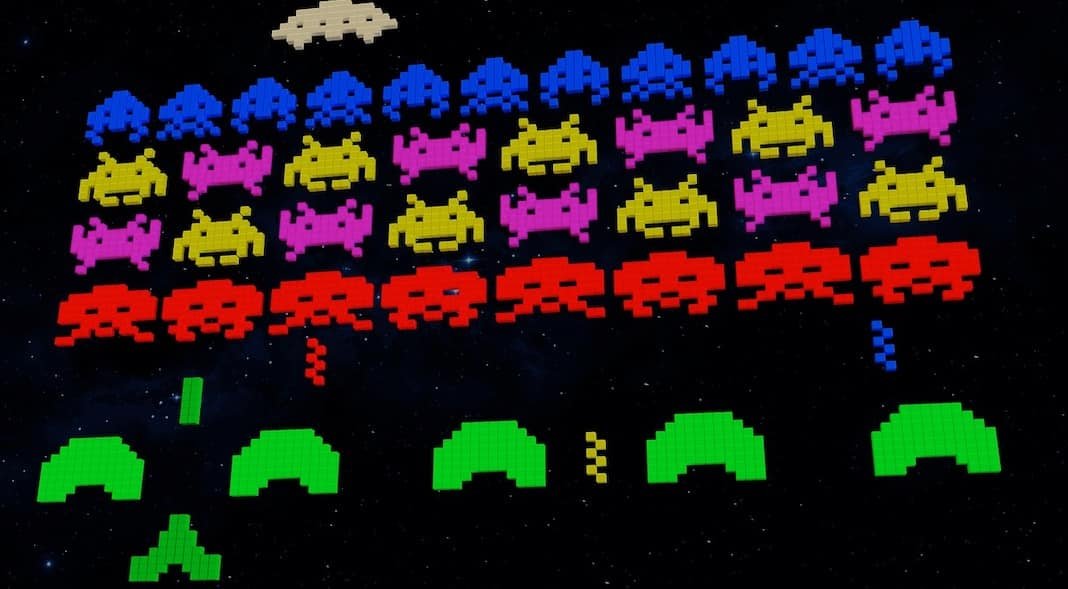The War Over Emulation and ROMs
Maybe we should emulate the emulators...?
 If you listen to the gaming press, you likely know that Nintendo has launched a “War on Emulation” that has already claimed some very significant casualties.
If you listen to the gaming press, you likely know that Nintendo has launched a “War on Emulation” that has already claimed some very significant casualties.
First, there was the lawsuit filed against LoveROMs.com and LoveRetro.co, both of which quickly shuttered. Shortly after that, the website EmuParadise voluntarily removed all ROMs from its website, bringing an end to 18 years of hosting them. In a statement about the removal, the website said that there was simply no way for it to continue hosting the ROMs without putting themselves at risk.
“It’s not worth it for us to risk potentially disastrous consequences. I cannot in good conscience risk the futures of our team members who have contributed to the site through the years.”
However, this war on emulation is neither new nor exclusive to Nintendo. In 2015 Nintendo shuttered a browser-based Game Boy Advanced emulator and, in 2017, video game developer Atlus targeted a Playstation 3 emulator after it advertised compatibility with their game Persona 5.
Still, there is little doubt that the war is heating up, both in terms of intensity and frequency. Furthermore, there is also little doubt that Nintendo is leading the way.
All of this raises some serious questions including “What is the legal status of emulation?” and “Why is this war heating up now, after decades of emulation being relatively ignored?”
The answer to both questions is fairly straightforward, but getting there requires first understanding a bit more about emulation and how it works.
The Basics of Emulation and the Law
 Emulation is when you take a video game that was designed to run on one console and run it on another platform, usually a personal computer. This is done in two parts.
Emulation is when you take a video game that was designed to run on one console and run it on another platform, usually a personal computer. This is done in two parts.
First is the emulator itself. The emulator is the software that replicates the original console. If you attempted to play a Nintendo Entertainment System (NES) or Atari 2600 game on your computer, it wouldn’t run. Your computer doesn’t understand the game’s instructions. The emulator simply translates the game’s instructions for your computer.
The second part is the ROM. The ROM is a downloadable version of the game. For older games, such as on NES or Atari 2600, ROMS are incredibly small (often just a few KB in size) but for newer consoles, they can be much larger. (Note: In some cases, emulators can read and use legitimate copies of games, especially those stored on CD or DVD.)
Emulators themselves are not infringing. As long as they don’t use any code from the original system, emulators are perfectly legal. The issue, however, is the ROM. It is an unauthorized copy of a work protected by copyright, as such, it is an infringement.
However, the video game industry hasn’t always been aggressive in trying to stop ROM distribution. At a time when the music industry was suing thousands of suspected pirates, video game companies were either ignoring or taking a softer approach with ROM downloads.
That’s because most of the games being distributed via ROM format were (and still are) retro games. Many of these games simply were not available legally and the perceived value in them was very low. It just made more sense to focus anti-piracy efforts on new releases.
That lack of enforcement created an unintended air of legitimacy around emulation, especially of older games. Many believed that “abandonware” was legal to download and distribute. This was bolstered by the fact that sites like Abandonia and EmuParadise served as hubs for such software for over a decade and a half without significant interference from publishers.
However, that would slowly start to change as both the video game industry and emulation began to shift.
What’s Old Becomes New Again
Two things have changed in recent years that have combined to bring Emulation to something of a legal head.
The first is that video game publishers, in particular, Nintendo, have begun aggressively marketing and selling retro titles. Whether its the NES Classic console or games offered on one of their digital stores, developers and publishers have found a lot of money in selling classic games.
Second is that emulation has gotten far more advanced. Emulation isn’t just for classic consoles as computers can run emulators for current systems as well, including the PlayStation 4, Xbox One and the Nintendo Switch. The line between emulation of classic games and piracy of current games has started to blur.
These things have brought a lot of attention from video game companies to emulation and this includes sites that have been around since the new millennium.
However, the implications of this crackdown go far beyond dollars and cents. Video games are a crucial part of our culture and its a part of our culture that, literally and figuratively, is fading away.
Emulation and Preservation
 Video games are a different form of art than just about anything else. Though you can see images or videos of a video game, the only way to really experience it is to play it. That, however, requires a long list of things to come together.
Video games are a different form of art than just about anything else. Though you can see images or videos of a video game, the only way to really experience it is to play it. That, however, requires a long list of things to come together.
First, you need all of the working hardware to play the game. That alone is increasingly difficult as older consoles aren’t being manufactured and the ones that do work are breaking down.
Second, you need the game. This can also be difficult and expensive if a game is rare. Just as with the original hardware, many classic games are just getting increasingly rare over time. This says nothing about multiplayer and singleplayer DRM games that are lost for good when their servers close, as what happened to Darkspore.
Finally, you need to ensure that the technology you have is compatible with the game and hardware. For example, games that used the NES zapper can’t be played on modern TVs. This means, even if you own a working NES and a copy of Duck Hunt, you still may not be able to play it properly.
Emulation gets around these problems by making all of the hardware you have compatible with the game and making the game available via download. Though an emulated game is never the same as the original, for many games it’s the only practical option to experience it.
This isn’t to say that all emulation is ethical and ROMs should be legal, but it does indicate that, for rightsholders, this must be a more nuanced battle. An effort to stop piracy could accidentally stamp out history as well.
Part of the issue is that we’ve had film and music archivists working to preserve those kinds of media for nearly a century. However, the question of how to preserve video games is still largely an unanswered one and the question just gets more complicated with .
Right now, emulation is one of the best answers. However, it’s one that some video game makers are fighting to take away.
Bottom Line
There’s simply no easy answer to this. On one hand, emulation, even of retro games, is a form of piracy and, as video game makers find new revenue in those games, it is harmful to their business. On the other hand, unlawful emulation is often either the best or the only way to experience a particular video game.
Nintendo and others are well within their right to target sites distributing ROMs of their games. On the other hand, others are right to be worried about the potential for games to be lost to history.
The hope is that some balance can be reached but one thing is clear, the status quo that existed for much of the past 20 years is gone. Emulation is in the crosshairs now and that means we likely haven’t seen the last of these types of stories.
For better or worse, there’s likely a lot of change coming to this area.
Want to Reuse or Republish this Content?
If you want to feature this article in your site, classroom or elsewhere, just let us know! We usually grant permission within 24 hours.
